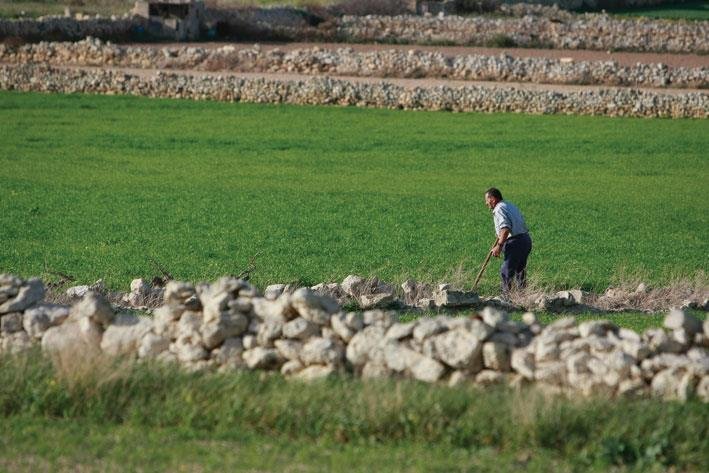The Notarial Council has expressed grave concern over the enactment of Legal Notice 150 of 2025, known as the Protection of Agricultural Land Regulations, warning that the new measures risk undermining citizens’ constitutional rights to property ownership.
While the Council acknowledged the importance of protecting Malta’s farmland and ensuring its sustainable use, it argued that the regulations impose disproportionate restrictions on landowners and grant excessive powers to administrative authorities.
Under the new framework, all agricultural land must be registered within six months, with failure to comply allowing the Agricultural and Rural Payments Agency (ARPA) to assume possession of the unregistered land until a rightful owner is identified. Landowners and farmers are also required to till their land at least once per agricultural year and submit annual crop plans, regardless of their personal circumstances or whether alternative uses may have been authorised by the Planning Authority.
The regulations further restrict permissible activities, prohibiting any use deemed inconsistent with farming, and ban the promotion or sale of land for recreational purposes. They also outlaw activities that damage soil, such as covering plots with concrete or using them for storage. A wide remit of enforcement powers is entrusted to the Director of Agriculture, who may issue corrective orders, warnings, and impose emergency measures where deemed necessary.
The Notarial Council said these measures place a heavy burden of compliance on private citizens, effectively curtailing their autonomy over land ownership. It argued that landowners risk losing the enjoyment of their property or facing administrative penalties even in cases of inadvertent non-compliance, warning that the framework could amount to effective expropriation without due process. The Council stated that this approach contravenes both the Constitution of Malta and the European Convention on Human Rights.
A particular point of contention is the reference to refunds of fiscal and notarial costs in cases where land reverts to its owner or farmer. The Council maintained that this creates uncertainty, given that the register should be a record of possession rather than a transfer of ownership. Legal professionals have also warned that if successfully challenged in court, the law could leave the state liable to compensate landowners for damages from public funds, as occurred previously in urban lease cases.
The regulations were introduced by the Minister for Agriculture, Fisheries and Animal Rights, Anton Refalo, who insisted that the reforms mark a pivotal moment for Malta’s agricultural sector. He argued that the government’s aim is to safeguard farmland, encourage active cultivation, and prevent its conversion into recreational use. Refalo said the purpose of the regulations is not to obstruct farmers but to support them, stressing that the initiative was based on the Agricultural Land Reform White Paper of 2022 and the Agriculture Act of 2024. The ministry said the framework is designed to tackle land abandonment and speculative neglect which leads to agricultural land being used for non-agricultural purposes, adding that every plot of land must be cultivated at least once per agricultural year unless fallowing is part of a recognised crop rotation strategy.
Permanent Secretary Ronald Mizzi linked the reform to Malta Vision 2050, which treats farmland as a cornerstone of sustainability. He said the strategy is intended to strengthen food security, promote local produce, and enhance climate action and biodiversity as part of a green and circular economy. According to Mizzi, the government is committed to meeting stakeholders in pursuit of a collective effort towards a sustainable future and improved quality of life for all.
Despite these assurances, the Notarial Council is calling for an immediate suspension of the regulations and a full reconsideration to ensure that private ownership rights are respected. It also urged meaningful consultation with landowners, farmers and the notarial profession before measures of such consequence are enacted. Furthermore, it stressed the need for safeguards that guarantee temporary possession or restrictions imposed by the authorities do not result in an effective expropriation of private property without due process and just compensation.

